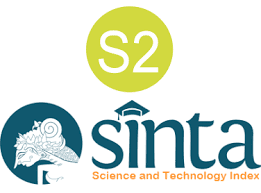Neo-liberalism and Global Economic Crises (The changing of the state-market relations in Indonesia)
Abstract
In globalization era, intervention and influence of developed countries to developing countries are more exist. Those influences are not in form of war or radical ways but more moderate and well organized (deregulation, privatization, and liberalization) through international treaties in International organizations (IMF, WTO, and World Bank). Many developing countries can describe how it occurs, for instance Latin American countries, South African Countries, and Asian Countries. The interventions give many impacts toward domestic policies in a country. Under Neo Liberal ideology, those international relationships and treaties have changed the paradigm of state, private, and society relations.
Full Text:
PDFReferences
Dag Einar Thorsen and Amund Lie, 2006, What Is Neoliberalism, Department of Political Science, University of Oslo.
Evans, K. 1998. Survey of recent developments. Bulletin of Indonesian Economic Studies 34(3):5-36.
Evans, Peter, 1979.Dependent Development: The Alliance of Multinational, State and Local Capital in Brazil, University Press, New Jersey in the United Kingdom
E.S, Savas, 1987, Privatization: Is the Key for Better Government, Chatham New Jersey.
George, Susan, 1999. A Short History of Neoliberalism Twenty Years of Elite Economics and Emerging Opportunities for Structural Change.Transnational Institute.
James A. Caporaso dan David P.Lavine, Theories of Political Economy, (New York: Cambridge University Press, 1992).
Refbacks
- There are currently no refbacks.










